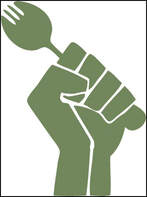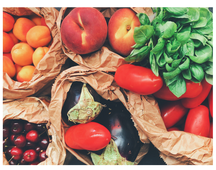|
By Vinussa Rameshshanker, Carleton University Graduate Student  On April 20th, 2021, former police officer Derek Chauvin was found guilty of manslaughter as well as second- and third-degree murder of African American George Floyd last Summer.¹ What began as another instance of institutional racism within the American policing system erupted into an unprecedented, powerful global movement to recognize and transform the systemic discrimination and institutional violence that has disadvantaged people of colour throughout history. Structural racism has been front and center in recent months, referring to the pervasive inequities within the political, economic, and social systems that shape our lives.² Structural racism has repeatedly upheld ‘white privilege’ (both intentionally and unintentionally) at the expense of disadvantaging people of colour in terms of how they live, the opportunities they have access to, and ultimately their wellbeing and quality of life. Race – one of our strongest defining qualities – is a social determinant of health and wellbeing because of the systems we live in. We see racial inequities in all facets of life, whether it be access to safe and secure housing, quality education, or healthcare. We see it now as the COVID-19 pandemic rages on. One year into the pandemic, Canadian communities with the highest concentrations of visible minority populations have had roughly twice the mortality rates of communities with the lowest proportions of racial minorities.³  Without a doubt, yet another aspect of structural racism integral to our wellbeing lies within the systems through which we access food. The time for racial food justice is now. Food justice necessitates questioning the inequities, including those related to race, that structure who produces food, who has access to healthy and nutritious foods, and the kinds of food we eat to nourish us throughout our lives.⁴ We all have the right to adequate food, and the implications of having access to quality nutrition, from childhood to our later years, can be simultaneously obvious and complex. Not only does a healthy and nutritious diet allow us to grow and develop as children, but it also affects how we behave and learn in school, which in turn affects the employment opportunities and standards of living we have as adults. True to the insidious nature of structural racism, the ideal standard of upholding the right to food for all is not immune to racial inequities. For instance, household food insecurity has a strong influence on the academic success of high school students and their transition to higher education,⁵ an undeniable early foundation that paves the way for greater income security and subsequent food security during adulthood.5 However, PROOF (an interdisciplinary Canadian research consortium on food) found that 1 in 8 Canadian households were food insecure in 2017-18.⁶ Even more concerning, the prevalence of food insecurity within Indigenous- and Black-identified households (28.2% and 28.9%, respectively) was almost triple the prevalence of food insecurity amongst White-identified households (11.1%).⁶ A host of factors might explain these disparities, including racialized differences in income, the accessibility of quality and affordable food retailers in the neighbourhood, and housing stability.  Unfortunately, COVID-19 has only exacerbated such inequities. Shortly after the pandemic began, Statistics Canada data highlighted a clear racialized unemployment gap, with visible minority populations facing significantly higher (and in some cases, almost double) rates of unemployment than individuals not of a visible minority or Indigenous identity.⁷ With greater unemployment rates impacting income security for people of colour, the domino effects on household- and community-level food insecurity are not far behind. And so the story of food injustice continues – racial inequities in one system, such as access to economic opportunities, perpetuate inequities in the availability of and access to nutritious foods essential to our health and wellbeing. Once we begin to recognize structural racism within the very systems we inhabit, the natural next step is to identify what can be done, especially given the apparent amplification of inequities tied to the current pandemic. Recognizing the complexity behind structural racism and food security in Canada is a good start, but the purpose of recognition is not complacency. Rather, we must interrogate why such racial inequities exist, whether it be disparities related to job security or the disproportionate levels of racialized communities living in lower income neighbourhoods that lack access to affordable healthy foods.  Even in the mere act of reading these words, there is an inherent privilege and power you hold. Whether you are a student pursuing higher education, or a working professional browsing the web on your downtime, you have a voice and the agency to bring attention to these injustices. As with other sociocultural inequities in health and wellbeing, racialized food injustice and insecurity is an evident problem, but it is also an opportunity. An opportunity to start talking, questioning, and finding ways to act to implement comprehensive solutions that can help push our society towards equitable outcomes in health, wellbeing, and quality of life for all. References:
1 Comment
|
Archives
March 2023
Categories
All
|

 RSS Feed
RSS Feed